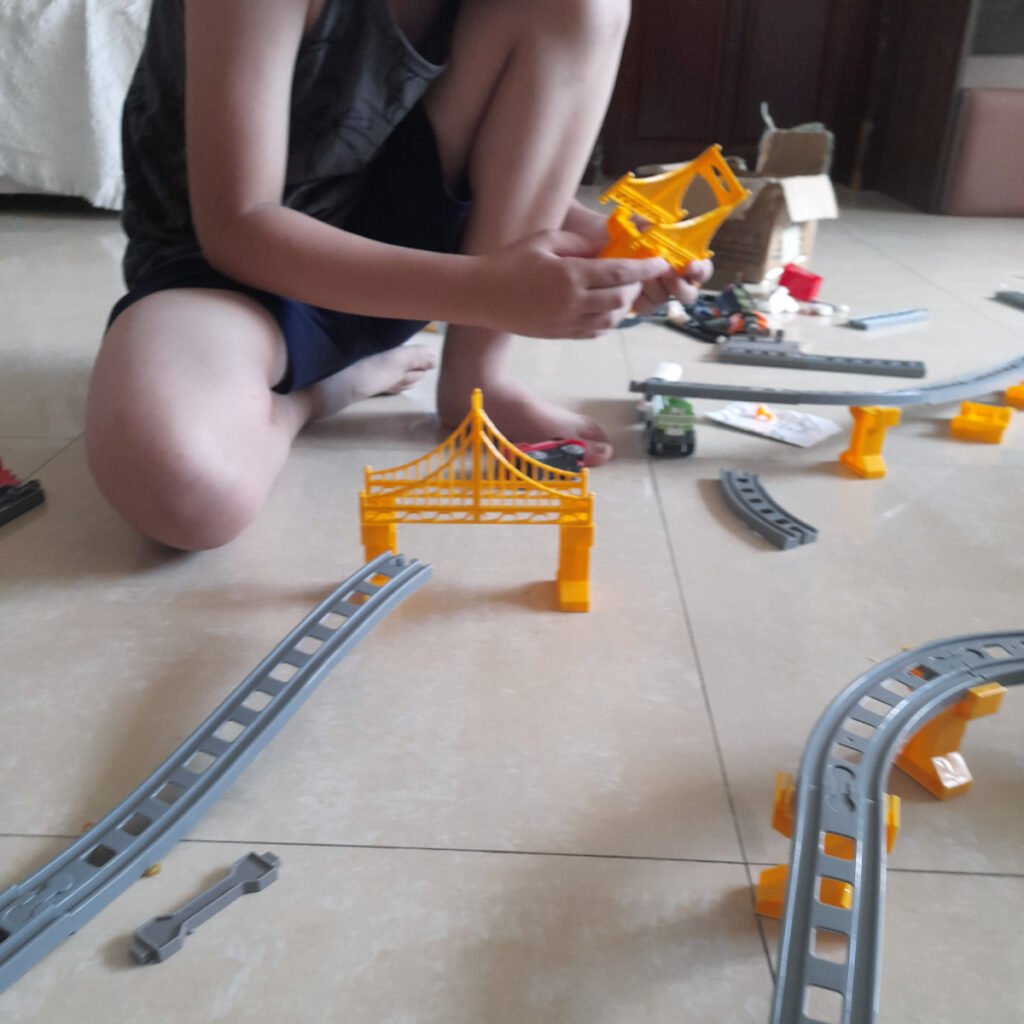articles
China Elevator Stories
What Does It Look Like When a Narcissistic Parent Constantly Works Against You?
The smallest of decisions may be undermined by a narcissistic co-parent.
05/09/2025

Ruth Silbermayr
Author

My personal experience is that even the smallest decisions can be sabotaged and undermined by a narcissistic parent or grandparent.
One way a narcissist does this is by interfering with your time. For example, when you agree with your children that you will pick them up from school on Thursdays and Fridays, he may forbid you from doing so, ensuring you won’t get to spend time with them. Both my children said they wanted me to pick them up, since I have time on those days, and they even told me it was their father’s idea for me to do so. But after we agreed, he interfered by only allowing me to see my children on Sundays. It’s not as if he takes care of our children himself most of the time; he puts them in his father’s care from Monday to Friday, while I, their mother and legal guardian, am not allowed to see or care for them on the days I am available. On Saturdays and Sundays, my ex-husband leaves our children home alone while he is at work, instead of looking after them. My children wanted to spend the weekends at my place, but he did not allow that either.
Last Sunday, he didn’t allow them to come to my place, so we will see if he actually meant it when he said he would bring them here. He’s constantly changing agreements at the last minute, and that’s how it has been for years, just as it also tended to be with his mother.
When the judge in Austria ruled that I would be allowed two video calls with my children, one hour each, his mother constantly interfered and claimed it wasn’t possible to do so. She also refused to agree on having the video calls at a fixed time and used the excuse that it was impossible to teach children to do things at a certain time. Instead, she insisted they could call me whenever it was convenient for her—which was not often. The calls became shorter and shorter, happened only weekly or not at all, and sometimes stopped altogether for months on end.
My ex-husband won’t let me look after our children even when there is a safety threat, such as when no adult is home to make sure they aren’t starting a fire, getting hurt, or something similar. This is extremely reckless behavior, particularly considering the fact that they don’t yet know how to look after themselves safely. It is also horrific that he doesn’t cook for our younger son, who has become severely underweight, likely because he has had to prepare food on his own for a very long time.
I am currently preparing court documents, just in case, since my ex-husband and I could not reach an agreement that worked for both of us, rather than only for him, and since he does not care about their safety and is putting their lives at extreme risk.
On wollens.co.uk, signs that a parent is alienating children from the other parent may include the following actions:
What is it Parental Alienation?
Parental Alienation can occur when separated parents intentionally and unintentionally isolate their child from the other parent – this can occur in the following ways:
Repeatedly breaking or changing agreed arrangements
Blocking calls, texts, emails from the other parent
Failing to consult the other parent of updated educational and medical issues
Using time with the other child to barter money. For example, telling the other parent they cannot see their child unless they pay money.Why does it happen?
There are several reasons why this may happen. The most common is when there are conflicts between parents, and they begin to use their child to control the situation. For example, if the other parent has a new partner. In some cases, one parent may not agree with what the other has given the child to eat, therefore they cease contact on the basis they do not agree. (…)
How does parental alienation happen?
Interfering with time for example, making plans or arranging events at a time when the child is due to spend time with the other parent.
Making False allegations about the other parent – this can include calling Social Services about the other parent as an attempt to prevent their child being with them.
Destroying or withholding gifts from the other parent as well as letters or photos.
Burden the child/ren with anger and emotional outbursts.Signs in the child
Children might demonstrate extreme negative views of the other parent and seeing one parent as good and the other as bad. Perpetrators can then feed from this and use it to justify their actions.
Feeling protective over the perpetrator, siding with them and showing lack of remorse for the other parent.
The child may adopt their parent’s way of thinking and act on guilt.
If this is happening – How can I prove it?
To prove that parental alienation is occurring, you will need evidence showing that the negative pattern of behaviour is harming your child.
My children both show such signs, and it is truly difficult to try to undo the damage caused by their narcissistic father.
Another recent occurrence—though he has done this in the past as well, it is only more obvious to me now—is that he constantly brainwashes our children to reject Austrian customs and culture, and he frequently puts down my parenting. My parenting is not bad; I simply set healthy boundaries, meaning I give them guidelines, as any parent should. His parenting style is permissive parenting, which is not healthy for children and does not help them grow into responsible human beings. I understand that this is not always common among Chinese parents, who are often too immature to properly care for their children and may lack sufficient knowledge about parenting. This is particularly true for the only-child generation, many of whom were raised with very limited knowledge of child-rearing.
One way he interfered with my parenting was by brainwashing our children to reject wearing the clothes I had bought for them. I had bought clothes for my children to wear at my place, since their father often sent them without clothes to change into. After my ex-husband learned which clothes I had bought, he convinced my son that he couldn’t wear them because “they are not appropriate clothes for this city.”
He constantly says things to brainwash our children into believing that whatever I do is never correct, and that whatever I buy for them isn’t appropriate. The customs may not even be particularly Austrian, but he still frames it in a way that makes my children believe they must reject how I parent and are only allowed to do what he permits as a Chinese parent. (His parenting skills, by the way, are HORRIFIC—I have never seen anything as horrendous as that.)
Since my son didn’t mind wearing the clothes I had bought and had actually worn them all the time in the weeks before, I found this statement rude. The clothes his grandfather bought for them weren’t always ideal either, but it is common to be attacked by a narcissistic parent for not doing things “the right way” and to have that parent manipulate the children into thinking their mother isn’t credible. In this case, my son doesn’t care about style, so he was fine with whatever clothes I had bought, and I always let him choose which clothes he wanted to wear. Others did not comment negatively, and other children wore similar clothes.

When I bought clothes they could wear in Tai’an, I chose clothes that were 100% cotton (since they were wearing synthetic clothes their dad or grandfather had bought for them), that wouldn’t be too hot in summer and could be layered under long sleeves in winter in Northeast China, prioritizing practicality. My ex-husband’s claims certainly did not seem accurate to me.
Most Austrian parents I know tend to understand that cotton is a healthier option for children compared to synthetic materials.
On cottongins.org, the benefits of cotton are described as follows:
Why cotton is better than polyester:
Cotton outshines polyester in comfort, sustainability, and biodegradability. Here’s why:
Eco-Friendly: Cotton is natural, biodegradable, and uses less non-renewable energy. Polyester, made from petroleum, releases microplastics and requires twice the energy to produce.
Comfort: Cotton is breathable, soft, and absorbs moisture, making it ideal for sensitive skin. Polyester traps heat and moisture, often feeling less comfortable.
Environmental Impact: Organic cotton farming reduces water use by 91% and avoids harmful chemicals. Polyester production contributes to microplastic pollution and higher carbon emissions.
Durability vs. Maintenance: Polyester is more durable and low-maintenance but pollutes during washing. Cotton requires more care but breaks down naturally.
Here is a video by Sadhguru that recommends having your children wear natural materials (titled Is Your Child Wearing Polyester Clothing?):
When my ex-husband allowed my children to visit me in Tai’an, he sent them only with two large backpacks and one change of clothes for a few weeks in Tai’an. He constantly lets our children decide everything for themselves, and I feel this is somewhat neglectful, since he doesn’t make sure they have spare clothes or other essentials. Their backpacks were also adult-sized and particularly heavy. My younger son already has a hunched back and is very thin, so he really shouldn’t be carrying such a heavy backpack that only makes things worse. My ex-husband is not attentive to these details, as a responsible parent should be.
It’s not about preventing children from helping or being independent, but about checking what they’ve packed and ensuring they have what they need, so they don’t end up missing important things. I even bought them two children’s suitcases (not very expensive if you order them online here, but it adds up) and two lightweight backpacks, because I didn’t want their backs to get worse. I don’t believe a responsible parent would care so little about his children, and I think it’s possible to go too far and cross into neglect.
When a narcissistic parent criticizes your parenting, it often isn’t because you are truly worse at parenting than they are. In fact, it is often exactly the opposite: he may be a horrific parent and project onto you that you—the safe, reliable, and responsible caregiver—are none of these things.
Have you ever experienced a narcissistic parent working against you?